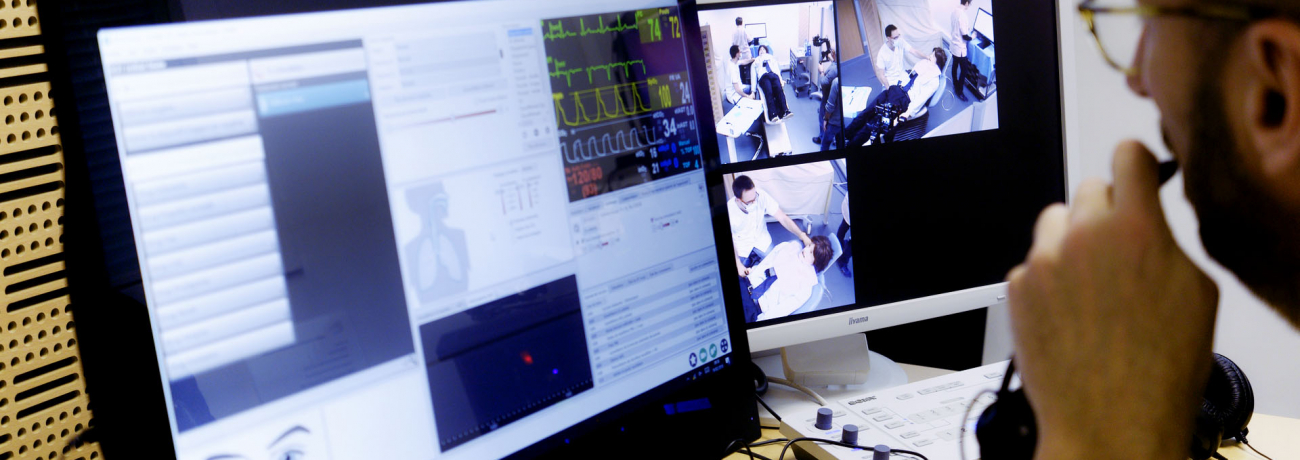The EXAN project aims to develop, at the SiMU (Experimental Laboratory of Intensive Medicine Simulation of the University of Nantes), three new ways of acquiring and consolidating expertise in emergency anaesthesia :
- single-user computer simulations ;
- computer-controlled full scale inter-professional high-fidelity simulation ;
- immersion in virtual reality
WINNER OF THE CALL FOR RESEARCH PROJECTS 2019
Five regional laboratories involved :
- LS2N (University of Nantes)
- SiMU (University of Nantes)
- CREN (University of Nantes)
- LIUM (Le Mans Univ.)
- LEMNA (University of Nantes)
in partnership with Nantes University Hospital and the Centre for Pedagogical Development of the University of Nantes
EXAN is co-funded by the Région Pays de la Loire (West Creative Industries), Nantes Métropole, the University of Nantes, Nantes University Hospital and the LS2N.
Methodology
In a novel way, the project will develop a method for the automated design of the learner experience based on a typology of anaesthesia cases, automatically determined from anaesthesia data collected by Nantes University Hospital. The objective is to potentially provide access to a wide variety of realistic situations.
Moreover, benefiting from the combined contributions of artificial intelligence (LS2N), professional didactics and cognitive ergonomics (CREN and the Centre for Pedagogical Development of the University of Nantes), the project will also increase the variety of learner situations by integrating situations likely to lead to learner error, or situations confronting the learner with third-party human error.
Finally, methodological work will make it possible to define a protocol to compare the benefits brought by the three modalities to learners and trainers alike (LEMNA).
Calendrar
Duration : three years, from 15/10/2019 to 12/10/2022
Perspectives
The EXAN project is built around a consortium of six partners. The carrying out of the LS2N thesis, co-funded by the WCI Research, Higher Education and Innovation programme, constitutes the first milestone. The work of the LS2N thesis will be carried out while maintaining active discussions within the consortium. A file will then be submitted for the CREN postdoctoral fellowship and the LIUM thesis by responding to an ANR call for projects or to one of the calls for projects identified on the relevant portal in the health sector.
With regard to the potential for transfer of the research results, it is planned that a company specializing in advanced digital development will put into production all or part of the prototypes designed over the course of the EXAN programme. An impact is therefore also expected in terms of visibility via this package of applications.
Contacts
Christine Sinoquet – Senior Lecturer in Computer Science at the University of Nantes and researcher at the LS2N – christine.sinoquet@univ-nantes.fr


